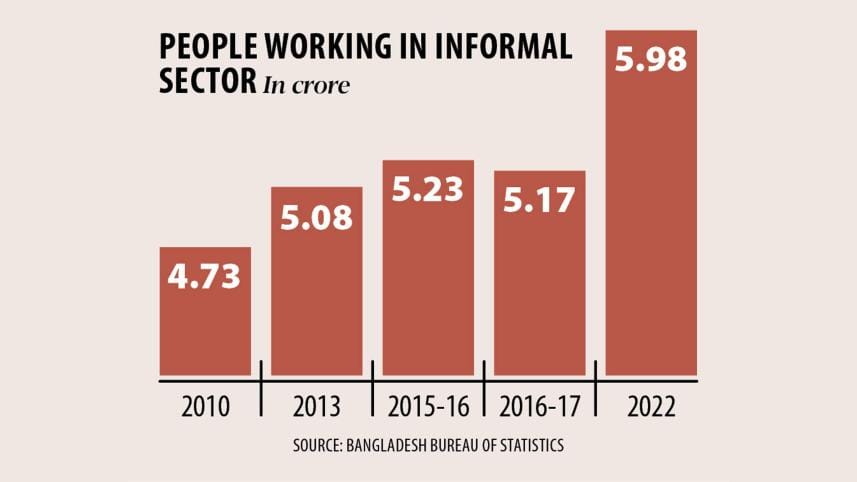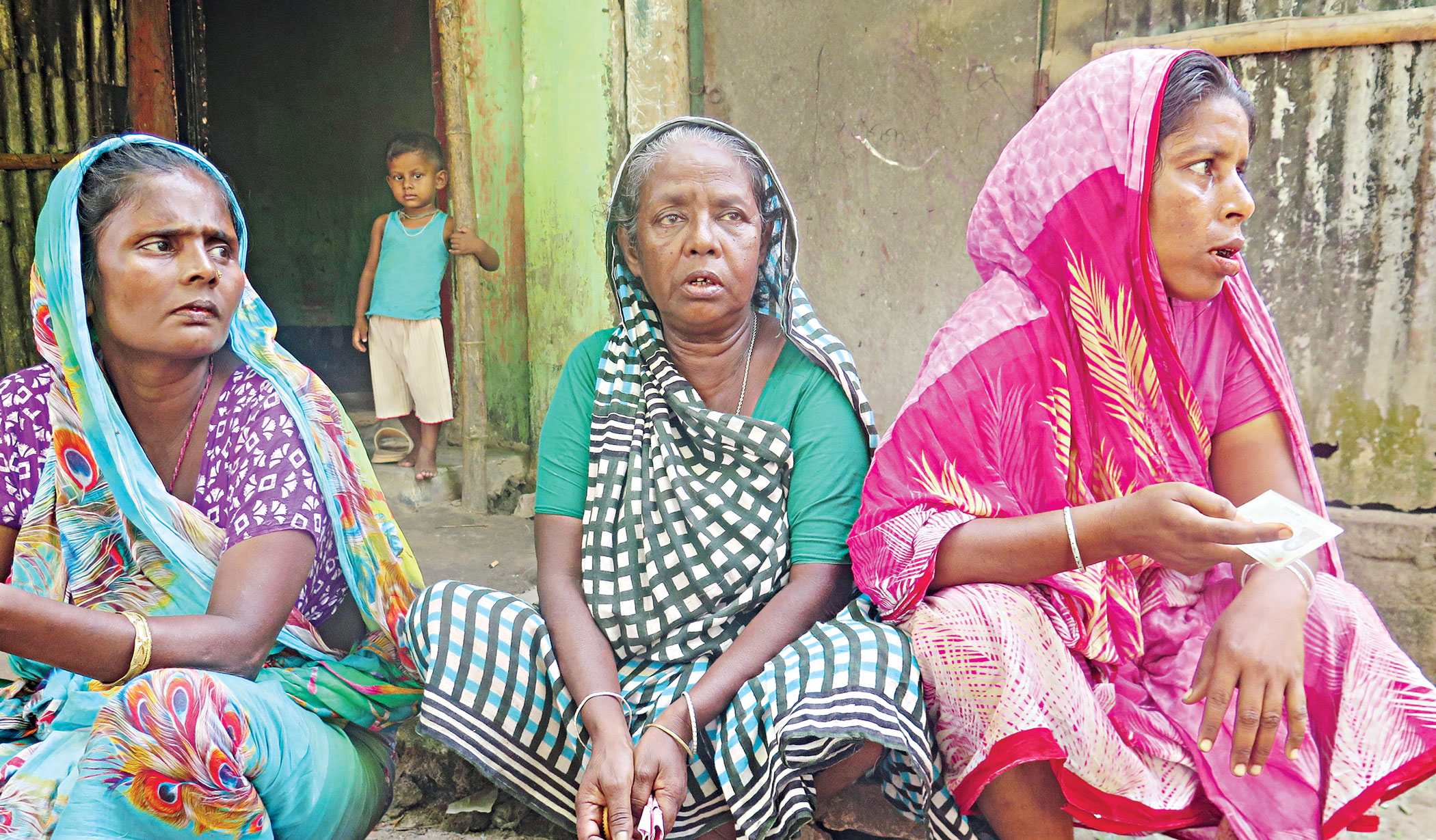The invisible ones

Of the over 7 crore people employed in Bangladesh, 85 percent (nearly 6 crore) are vulnerable as they work in the informal sector, which lacks basic social and legal protection, and employment benefits.
Mostly rickshaw-pullers, tea vendors, labourers, salespersons and people employed in farming, catering, transport, and construction make up the informal sector workforce.
And 80 percent of these workers are in rural areas, according to the Labour Force Survey 2022 of Bangladesh Bureau of Statistics.

"The sad part is there is no law for their protection and rights. The labour law framed in 2006 covers mainly formal sector workers," said Syed Sultan Uddin Ahmmed, executive director at Bangladesh Institute of Labour Studies (BILS).
The data showed that only 1.67 crore people are employed in the formal sectors.
Sultan said it's not like all the issues of formal sector workers have been addressed. "They at least have some legal protections. But the issues of the informal sector rarely get to be in the spotlight," he said, adding that the number of employed people in the informal sector is growing fast.
"Many who used to work in the formal sector are now having to work in the informal sector. Employers do not issue appointment letters and hire workers through contractors," he said.
The BBS data, released late last year, showed that the ratio of the informal sector workers and the total employed decreased by over 2.5 percentage points in 12 years since 2010, but the number of people working in the informal sector grew 26 percent.
The number of people engaged in the informal sector was 4.73 crore in 2010.
Echoing Sultan, Rizwanul Islam, former special adviser, employment sector at the International Labour Office, Geneva, said labour rights for people in the informal sector are not even discussed.
"As we have seen, many in the formal sector do not enjoy basic workers' rights, although Bangladesh has ratified the relevant ILO Conventions. Many in the informal sector merely earn enough to survive … ."
He said a lot of the workers in the informal sector are there for their sheer survival and a lack of better alternatives.
Razequzzaman Ratan, president of the Socialist Labour Front, said informal sector workers have no rights when it comes to job security; appointment letters; working-hour limits; wage structure; workplace safety; compensation after one's death; workplace injury compensation, treatment, rehabilitation; retirement benefit; maternity leave; and pension.
"Unemployment situation is so bad that people are bound to work under any conditions," he said.
Ratan said informal workers are the main drivers of our economy. "But their lives and livelihoods are always at risk. The state must take some responsibility for their housing, health, rations and pension."
Rizwanul said that in many developed countries, even small enterprises and the self-employed are regulated. Minimum wage, hours of work, and contributions to pension have to be ensured in Bangladesh.
He said rights should be looked into in a broader framework to cover not only workers but the self-employed and micro employers.
In addition, it is important to give attention to issues relating to workplace conditions, improving safety, and raising productivity, said Rizwanul.
Sultan of BILS said Bangladesh does not have any national rules for wage.
"In its absence, wages are determined on a piecemeal basis. And this is one of the main reasons for the widening of the income gap," he said.
There is no system for a family to get compensation in case a worker dies at the workplace.
He said labour law should cover whoever is employed.
Sultan said it's impossible to ensure true development with a labour law that keeps 85 percent of the workforce out of its purview.
He demanded appointment letters and a minimum national wage for the informal sector workers.
He said the workers should also be covered by social safety net protection.




 For all latest news, follow The Daily Star's Google News channel.
For all latest news, follow The Daily Star's Google News channel. 
Comments